GRS-Microcluster „Signatures“
Short profile
Duration
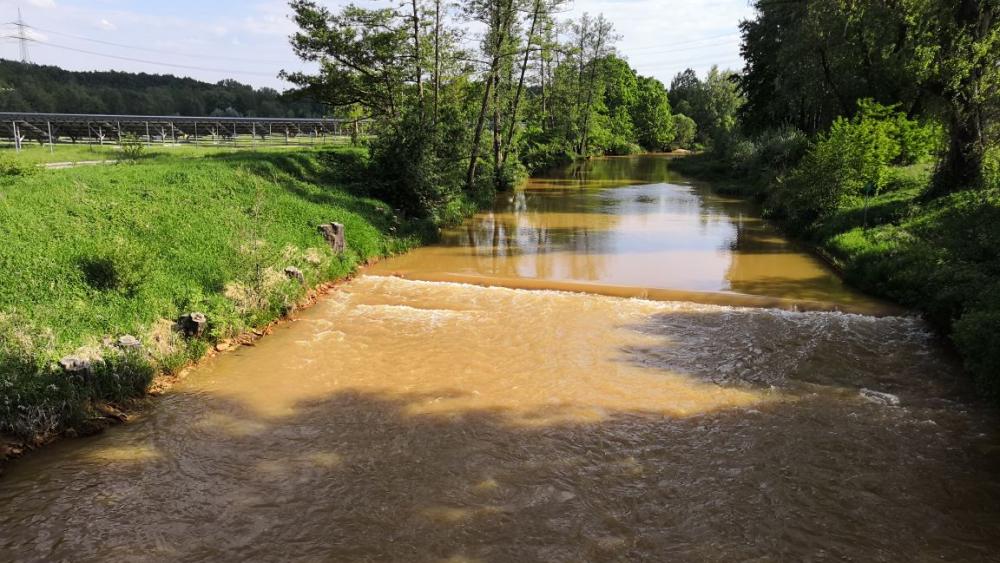
Browning of River Spree at Trattendorf/Brandenburg. | Photo: Thomas Rossoll
The impact of lignite mining activities on neighboring river and lakes ecosystems is a global ecological problem, especially caused by post-mining landscapes. Pyrite weathering in e.g. burden dumps causes unnatural high concentrations of iron and sulfate in surface water and visible browning of rivers and lakes, as well as high sulfate concentrations in drinking water (see also: Sulfate in River Spree and Müggelsee). By instance of the Lusatian post-mining landscape, the IGB research interdisciplinary together with the BTU Cottbus on dispersion mechanisms and biogeochemical disturbance signatures of coal mining iron in the Spree flow path, based on mineralogical, geochemical and microbiological analysis of sediment core samples. The knowledge should be used to improve recultivation by ecological engineering and transfer on other post-mining landscapes.
The project is a sub project of the Graduate Research School (GRS) Microcluster “Signatures of severely disturbed landscapes – case study mining landscapes” of the BTU Research Center Landscape Development and Mining Landscapes (FZLB), a joint cooperation of the IGB Berlin, BTU Cottbus and GFZ German Research Centre for Geosciences. The IGB project team members are Dr. Michael Hupfer (Project head) und Giulia Friedland (PhD student), in close collaboration with Dr. Björn Grüneberg (Freshwater Conservation, BTU Cottbus).
The video shows the River Spree from the source in Saxony to the mouth in River Havel. It gives an introduction to anthropogenic impacts (lignite mining and urban influences) on River Spree and field work methods (water and sediment sampling) frequently used by our Department of Chemical Analytics and Biogeochemistry.
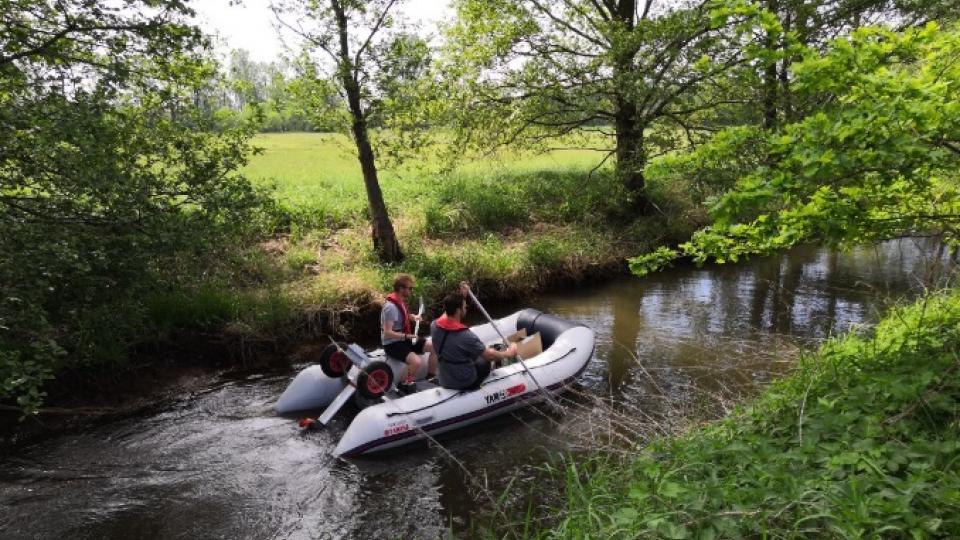
Water sampling on Südumfluter/Spree Forrest at 09.05.18. | Photo: Thomas Rossoll
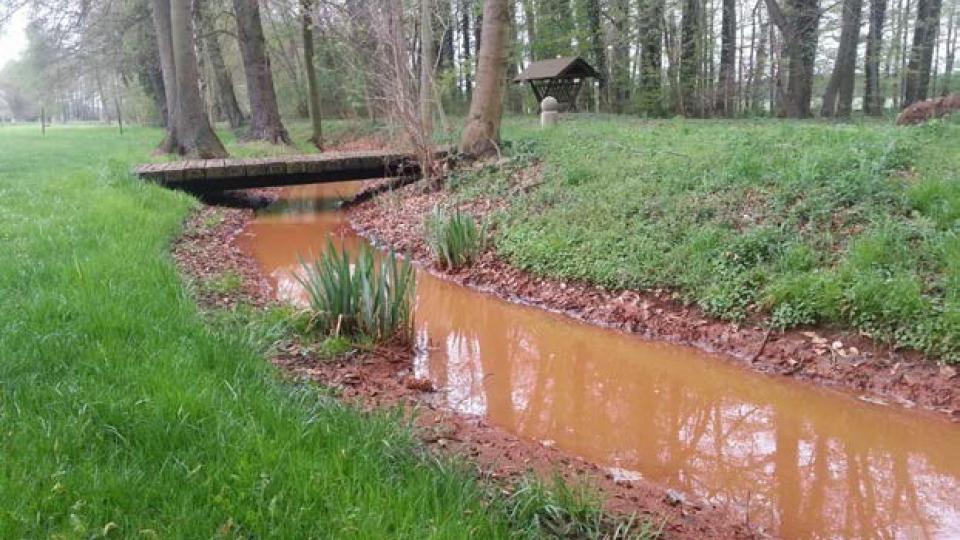
Browning of the Eichower Fließ 2015. | Photo: Dominik Zak
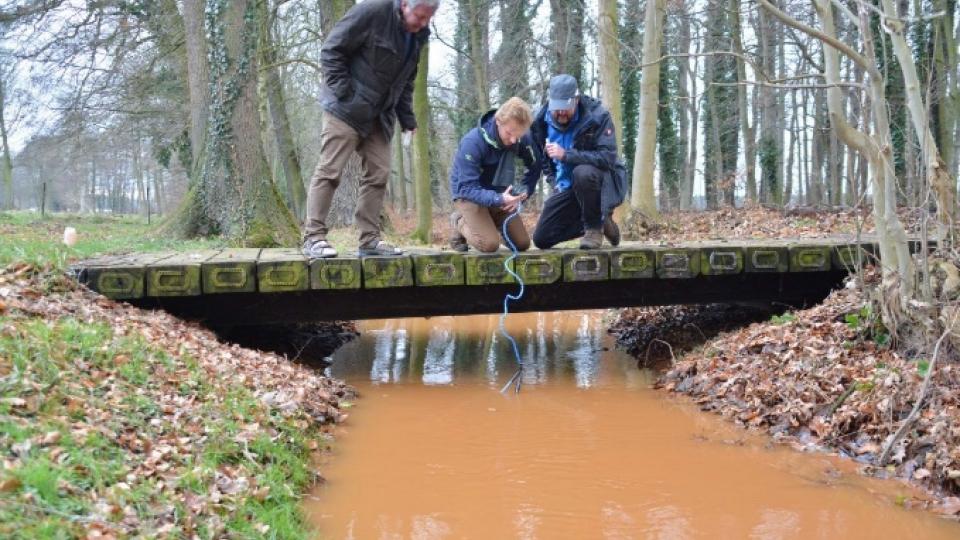
Multiparameter measurement of the Eichower Fließ at 17.01.2018. | Photo: Dr. Björn Grüneberg
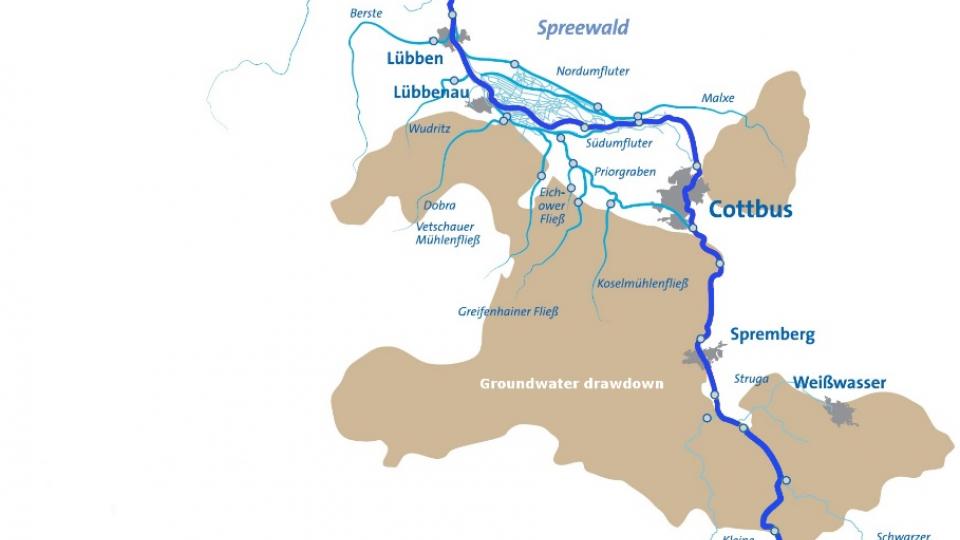
Groundwater draw down in the Lusatian lignite mining area (edited after IGB Dossier 2016).


